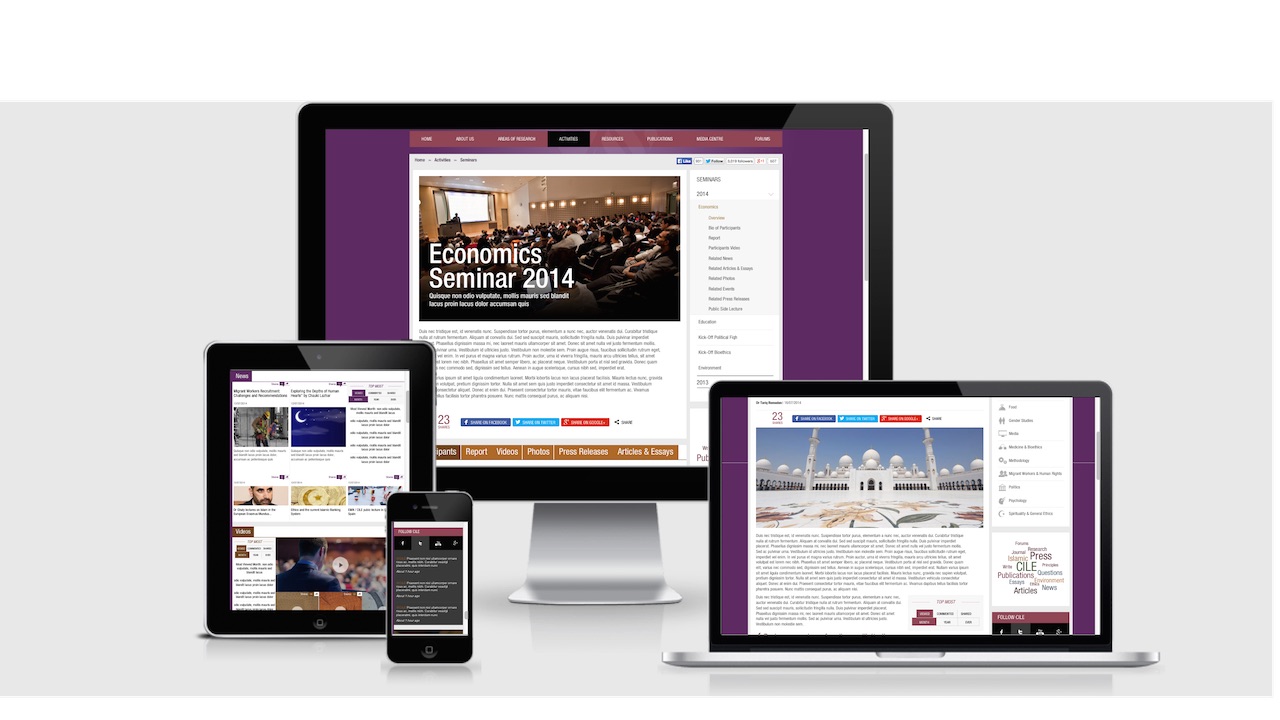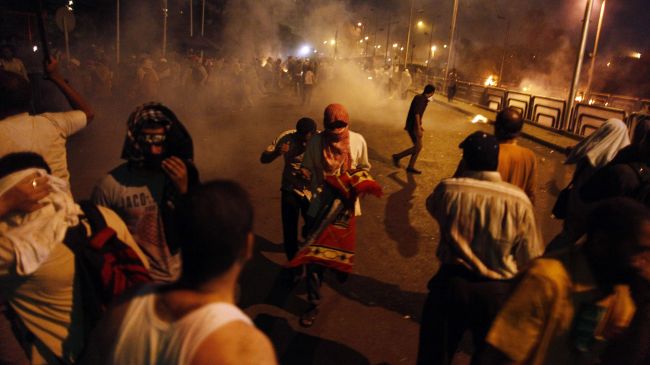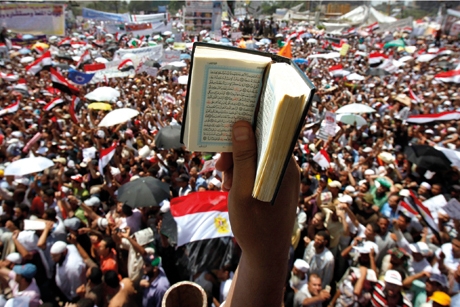Well said, badly heard Talk is cheap; seeing is believing
Almost two years after his June 2009 speech in Cairo, American president Barack Obama once again addressed the Arab populations of the Middle East and North Africa. This time, he was responding to two major events: the revolutionary upheavals that have shaken the region, and the death of Usama bin Laden. The election of a first “African American president” raised high hopes in majority Muslim countries, due less to Barack Obama’s roots than to a perceived renewal of America’s vision and policies after the dark years of the Bush regime. Where do these hopes stand today?
The current chief executive has proven himself an adept orator and a skilled manipulator of symbols. A change has clearly come about in the United States; the final page of a sinister era has been turned. But optimism has its limits; deeds must be measured against words. Candidate Obama promised to bring the lawlessness exemplified by Guantánamo to an end; to reform discriminatory legislation and to abolish the degrading practice of torture (legitimized in the name of the War on Terror); to wind down the wars in Iraq and in Afghanistan; to advance the Middle East peace process; and, ultimately, to inaugurate a new era in multipolar international relations.
But, as we look beyond the words and symbols, we realize that little has changed. In fact, America’s obsession with security has increased: Guantánamo remains a shameful reality, under new anti-terrorist legislation certain politically or religiously “sensitive” citizens face arbitrary and discriminatory treatment (from imprisonment to deportation based on mere suspicion), the wars in Iraq and Afghanistan drag on and the peace process is nothing but sound and fury signifying nothing. What then has changed, and what, in fact, must change?
Barack Obama’s silence is as significant as his words, and reveals the true substance of his message. He faces two principal challenges: on the international front—the core of his speech—and in domestic politics (about which he has maintained total silence one year before the presidential election). Political considerations determined his timing. His speech came hard on the heels of the “legal” operation against Usama bin Laden in Pakistan.
The execution of the alleged chief revealed once more the breadth of the chasm that separates the American administration from Muslims in the United States and around the world. Compared with the Western media, which played the event as a victory over the “symbol of terrorism”, reactions to bin Laden’s death amongst Western and Eastern Muslims, not to mention in the Global South as a whole, were muted. The absence of images and of proof, the hasty disposal of the body at sea raised questions and reinforced doubts. Most of all, they underscored the gap in perceptions. For the al-Qaeda leader never commanded the respect of the masses never galvanized the hearts of the Muslim peoples (with the exception of a minority of violent extremists). By its behavior the American government proved once again how poorly it understands Muslim hearts and minds. Barack Obama’s announcement of the elimination of bin Laden may have been eloquent, but few Muslims heard it and fewer still appreciated it. The president’s audience was strictly American. He demonstrated presidential resolve, readiness to act to protect his country and to make the hard and dangerous decisions incumbent upon a military leader. Often criticized for hesitation, his ratings shot up twelve points: a successful operation on the eve of an election year.
The time had thus come for a new message, pitched this time to Arabs, democrats, and Muslims in general. Mr. Obama had realized that he was not being understood, that he had failed to win over his target audience. But behind the American president’s seductive image and fine words stands an administration concerned neither with principle nor troubled by its incoherent domestic and foreign policy. Promised American support for the pro-democracy movements in North Africa and the Middle East is marked by radically different approaches (between Libya and Syria, where the indispensable Bashar al-Asad, whose forces have opened fire on unarmed civilians, is expected with the wave of a magic wand to reform his despotic regime) or by guilty silence from its allies the petromonarchies (such as Saudi-backed Bahrein) that repress and kill civilians and non-violent opponents. We heard a clear appeal to end the sufferings of the Palestinians and to recognize their rights. But the Obama government’s policy for the last three years has been one of silence: silence during the Gaza massacre, and over the killing of dozens of unarmed civilians during the commemoration of the Nakba on May 15 2011. It is all well and good for Mr. Obama to pay lip service to the 1967 borders as a basis for negotiations between Israel and the Palestinians. But American inaction in the face of the ongoing Israeli policy of colonization and of ‘facts on the ground’ reveals his position as not only as inconsistent, but inapplicable. Once again, words are employed to make Palestinians and Arabs dream, while Israel is given a free hand to implement its long-term strategy behind the media façade of tensions between the American and Israeli governments.
Guantánamo and torture are a fact of life in Barack Obama’s America, where the basic rights of prisoners are systematically denied and where the blood of Iraqi and Afghan civilians appears to count for nothing. Less, certainly, than that of Libyan civilians. Why? Is American policy in North Africa and the Middle East driven exclusively by economic considerations? Everything points in that direction. Barack Obama’s messages—spoken and unspoken—are unlikely to provide the Arab street with much reassurance. In his speech, the president emphasized the economic dimension of the Arab revolutions. There can be no true democratic process without economic stability and development, he argued. The formula is sound, the equation seductive. Barack Obama then went on to announce debt reduction, increased investment and American financial support to the region in collaboration with Europe, the World Bank and the International Monetary Fund. It would seem that the region’s democratic opening is contingent on the opening up of lucrative new markets. The American administration, and the multinational corporations it represents, appear less committed to democracy, justice and freedom than they are to profit and to promoting the ideology of consumerism. Mr. Obama presented American economic support in terms of solidarity and generosity toward the peoples of the region, while uttering not a word about his country’s decade-long record of neglect. Noteworthy too was his failure to mention new regional economic powers such as China, South America and Turkey. Do American and European strategists consider them as negligible factors? Most unlikely, now that we have learned to decode Barack Obama’s silence. Regional economic benefits (in North Africa and the Middle East) may well prove more important than bringing democratic norms to political life. The emerging model promises superficial political independence with a handful of freedoms tied to greater economic dependence with all the restrictions it implies. Economic liberalism is liberal for only a select few. Barack Obama enjoys repeating that, “America has nothing against Islam and Muslims” while failing to add “as long as they, whether democrats or autocrats, do not stand in the way of our interests.” A new face speaks the same old words. Only concrete action can be the motor for change. Muslims can hear perfectly well what is being said, and what is not being said. And in terms of a truly new policy, they are still waiting.
At the same time, Islam is emerging as an issue in the upcoming American elections. The Tea Party movement and their Neocon allies are warning against the dangers of Islam and the “islamization” of America. Eighteen American states are currently adopting surrealist legislation that would prohibit the application of the Shari’a, which is invariably presented as the epitome of barbarity. No longer is extremist and violent Islam the target, but Islam as a religion. Building upon controversy, the movement is gaining strength; a noxious atmosphere is being created. From the Park 51 (so-called “Ground Zero”) mosque to “Burn a Qur’an Day”, from local initiatives against Muslim activities or the building of mosques, tensions are rising, based on the same arguments and slogans that have surfaced during recent years in Europe. Muslim baiting and Islamophobia have reared their ugly heads, and are being used to isolate a large segment of the American population on the basis of their religious beliefs (in addition to long-existing racism against African-Americans). The policy draws on the same mix of fear, suspicion and rejection used by European populists like Geert Wilders who plays to full houses in the United States, confirming the new xenophobia’s popular appeal.
Paradoxically, the election of Barack Obama has provided these movements with an opening to advance their agenda by discrediting him, his origins and even his religion (23% of Americans believe he is a crypto-Muslim; 42% think he is not a good Christian, for a total of 65% skeptical Americans). Criticism of the president has become more strident; rumor and innuendo are used to undermine his credibility. It is all well and good to assert that Islam is an American religion, but his administration, in its domestic policy, must do more than mouth pious wishes. It must confront the islamophobes and their xenophobic allies with greater determination—and more egalitarian policies.
The president’s fine words have produced scant results at the grass roots. The upcoming elections are unlikely to lead to any significant change. Yet firm action would certainly be the best way for Mr. Obama to position himself as the president of renewed hope, capable of winning on a just and reasonable platform in 2012. The stakes are high. On the question of rekindling relations with Islam and Muslims, international and domestic politics go hand in hand. President Obama can no longer limit himself to an intelligent (and unfailingly open) dialogue with Muslim leaders and intellectuals. On the streets of the Middle East, as in America’s inner cities and recession-hit suburbs, ordinary Muslim citizens care little about his words and images. They continue to listen closely to the silences that reveal much more, and to certify the inaction that defines the critical inadequacy of Obama’s policies over the last three years. Like all peoples, those of the Islamic world are aware of the high irony of awarding a Nobel Peace Prize to a man that talks much about peace but does nothing to bring it about.
Today’s serious challenges cry out for concerted action. But the president’s fine, well-written speech runs once more the risk of being badly understood or misunderstood, if it is even heard at all. In the name of democratic transparency, should we not be asking that it be accompanied by something resembling coherence?










Salaams Br. Tariq and readers.
Your article was a great read. I hope that Pres. Barack Obama reads it and he has the courage to change his thinking and actions. But then the odds are stacked against him even if he is sincere, there’s the lobby AIPAC, the campaign funds that he so much depends on, « imperial » economic interests, etc.
Perhaps, we and the President should all re-read Franz Fanon’s « A Dying Colonialism » and « The Wretched of the Earth » to understand the plight of the experiences of colonisation and the new leadership.
The Arab Spring, nay « Arab Fall » was long overdue and should not be allowed to be hijacked by the imperial world and its sympathisers or hoodwinked leaders.
yousuf
Frankly speaking, whoever wrote this article failed to be realistic. Is it not obvious that, as a world power,America’s fairness to Arabs and muslims within her borders is highly commendable when compared to the non-recognition and extreme reprisals of Christians and their assemblies in the Islamic world? Are we free in Saudi Arabia or even here in Northern Nigeria as Arabs are in the US; owning properties, doing business and even building mosques? So what are we talking about here?
If you talked about US ‘aiding’ God’s Israel, did you ever want Israel to exist? If Israel had lost the Six Day War of 1967, would the Arabs have been fair enough to let them live and share land with them?
Don’t you think the world would be far more peaceful if the Muslim world just show a tenth of the ‘unkind’ kindness of America? My name is Akindele Opeyemi
I think this article captures the feeling felt by many Muslims as well as many honest Western observers around the world who are fed up and frustrated by the Obama Administration. Action through deeds is completely lacking by this administration, instead worthless words are spoken to cover the inaction that has been the course so far. Barack Obama has not changed his policies after taking over from Bush; in fact he has escalated the war-mongering which is a legacy of the Bush era.
In Afghanistan there were more troop escalations and as a consequence dramatic increase in deaths of ordinary Afghan civilians. In the neighboring Pakistan drone attacks operated by unmanned aerial vehicles under Obama has increased substantially as compared to Bush era resulting in more bloodshed. Barack Obama like Bush is also a war mongerer; the difference is that he is better and more skilled with manipulation of words to paint himself as a peace maker but his actions show the complete opposite. In Palestine he will not be able to do anything that conflicts against the wishes of Israel, Israeli companies, media and host of other groups have a huge influence on Obama Administration and he cannot due to his own interest in remaining president afford to upset them. He can speak publicly what he likes but behind closed doors Israel will have its way, just look at Netanyahu’s confidence in rebuffing the « President of the United States » for his 1967 border proposal. Now that idea is thrown out the window.Trusting him is becoming harder because of inaction so far and if he continues in this path this could become his own undoing and end his term as a president given that many American people have also realized this and are fed up with him.
Dear Tariq my name is jason ,I help run a christian theological seminary called Samuel Zwemer Theological Seminary.I want you to know as a christian I will do all I can to stand up for Muslim rights in the west.I also want to say how I admire your scholarship and honesty.So thankyou for all the words you write take care.
I also admire your honesty, very rare today.
[recette barbecue->http://www.recette-barbecue.fr]
What fine words does he speak? I’ve yet to see the great orator that is Barack Obama. Sure , he can read the words off the teleprompter in the arrogant manner of a third world dictator talking down to his subjects. When the teleprompter is absent, he stutters and mispronounces word in such a manner that it makes GW look like a genius. The man is a fool and anyone who voted for him is an even bigger fool. He’s not a leader. I’ve yet to see him solve a single issue while he’s been in office. He is a liar. He doesn’t misspeak, nor are his words taken out of context. The man is an out and out liar and is not capable of teeling the truth.